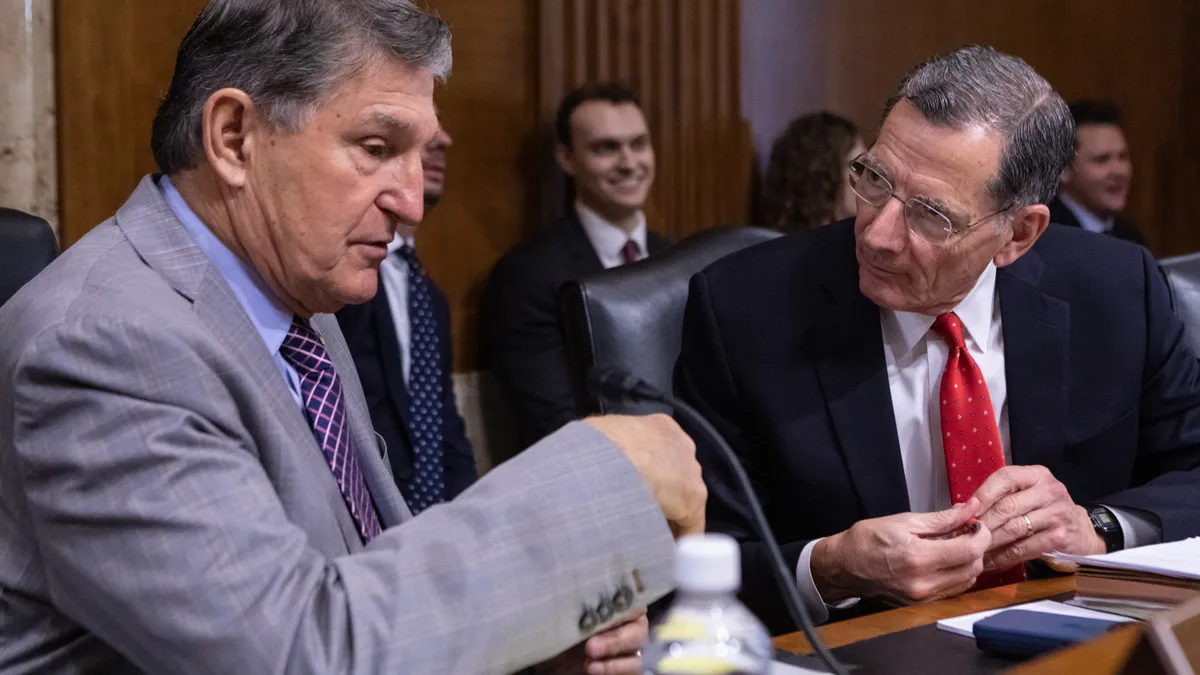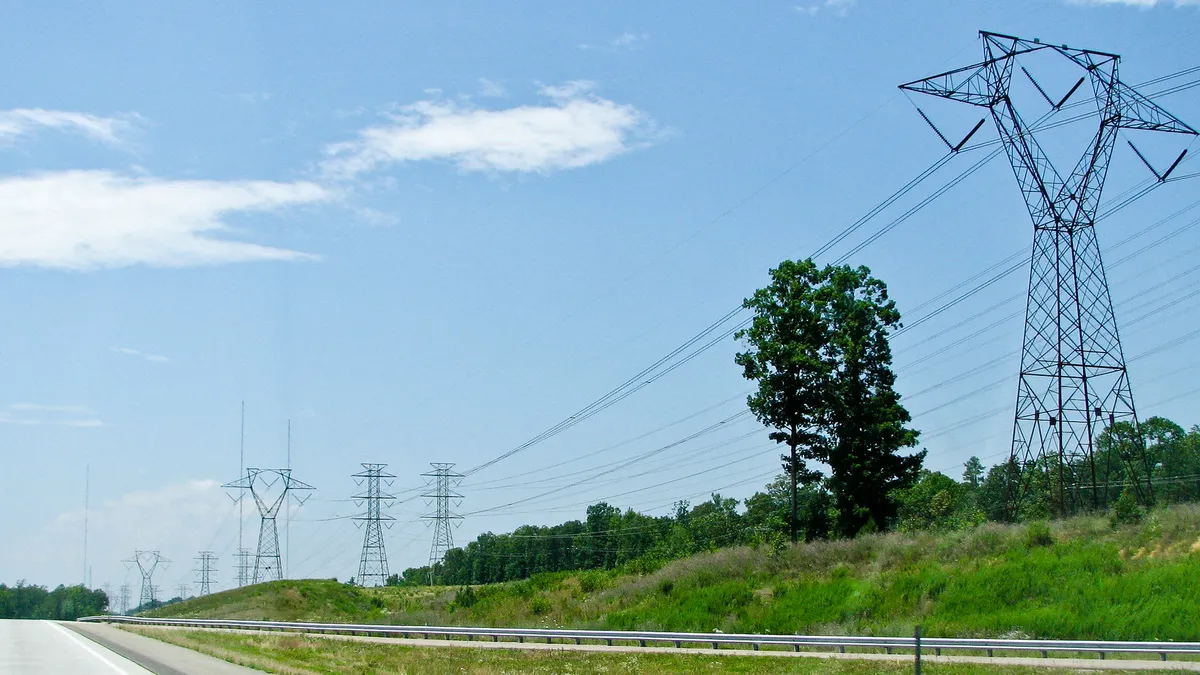The Senate Energy and Natural Resources Committee on Tuesday approved three nominees to be commissioners on the Federal Energy Regulatory Commission.
The Senate also confirmed Nuclear Regulatory Commission Chair Christopher Hanson for a second five-year term at the agency. Hanson’s first term ends June 30.
The full Senate must vote on the FERC nominees before they can take their seats at the agency, which has two vacant seats and one commissioner — Allison Clements — whose term ends June 30.
Clements can remain in her seat through this legislative session, which is set to end on Jan. 2. If Clements leaves before the nominees join FERC, the agency would lack a quorum for making decisions.
Noting that the activities regulated by FERC, such as wholesale power markets and oil and gas pipelines, accounts for about 7% of the U.S. economy, John Barrasso, R-Wyo., the top Republican on the committee, said it was vital that the agency have a quorum.
“Too much is at stake for American workers, for our energy security, and for our nation’s economy,” said Barrasso, who, like Committee Chairman Joe Manchin, I-W.Va., voted for all three nominees, which include two Democrats and a Republican. “While I may not agree with each of the nominees at all times, all of them are well qualified,” Barrasso said.
The nominees are Judy Chang, a managing principal at the Boston-based Analysis Group and former undersecretary of energy and climate solutions for Massachusetts under former Gov. Charlie Baker, a Republican; David Rosner, a FERC energy industry analyst on loan to the Democratic staff of the U.S. Senate Energy and Natural Resources Committee for the last two years; and Lindsay See, the West Virginia solicitor general. See is a Republican; Chang and Rosner are Democrats.
If approved, Rosner’s term would end on June 30, 2027. See’s term would expire a year later and Chang’s term would run to June 30, 2029.
Sen. Josh Hawley, R-Mo., voted against the nominees because of his objections to the Department of Energy’s policies around National Interest Electric Transmission Corridors, and FERC’s ability to approve transmission projects in those corridors when states don’t act on project proposals for more than a year or rejects them.
“FERC has the ability to counterman state authorities, essentially to bypass the state ... regulatory process and designate the land, including potentially taking it,” Hawley said.
DOE last month proposed 10 potential national interest transmission corridors, including one that would cross Missouri. Invenergy is developing the roughly $20 billion Grain Belt Express project, which has sparked lawsuits in Missouri over the use of eminent domain. The line would run from Kansas, across Northern Missouri to the Illinois-Indiana border. It could run inside the proposed corridor across Missouri.
See failed to address his concerns about the issue, according to Hawley. “I'm not going to vote for other Republican nominees who will not stand up to the power grab that is happening all across the country, and of which my state in particular has been a victim,” he said.
Permitting legislation that is being drafted in the Senate will include provisions related to national interest corridors, Manchin told Hawley during Tuesday’s committee meeting.
“The permitting bill that we're working on … which hopefully we're getting very close to sharing with everybody, I think you’ll be very pleased on what we're able to do because we have the same concerns you've had,” Manchin said.
The American Clean Power Association, a trade group representing energy companies, praised the committee’s approval of the FERC nominees. “FERC is currently focused on a range of critical issues, especially around the need to strengthen America’s power grid, and having a full slate of five commissioners will be an important element in the commission’s ability to carry out its mission,” Carrie Zalewski, ACP vice president of markets and transmission, said in a statement.
The Nuclear Innovation Alliance, a nuclear power-focused think tank, praised Hanson’s confirmation for a second term at the NRC. “Chair Hanson understands the importance of nuclear energy for meeting our climate and energy challenge,” NIA Executive Director Judi Greenwald said in a statement. “He has promoted effective and efficient licensing reviews, prioritized agency independence, and helped maintain public confidence in the NRC as a trusted safety regulator.”






















